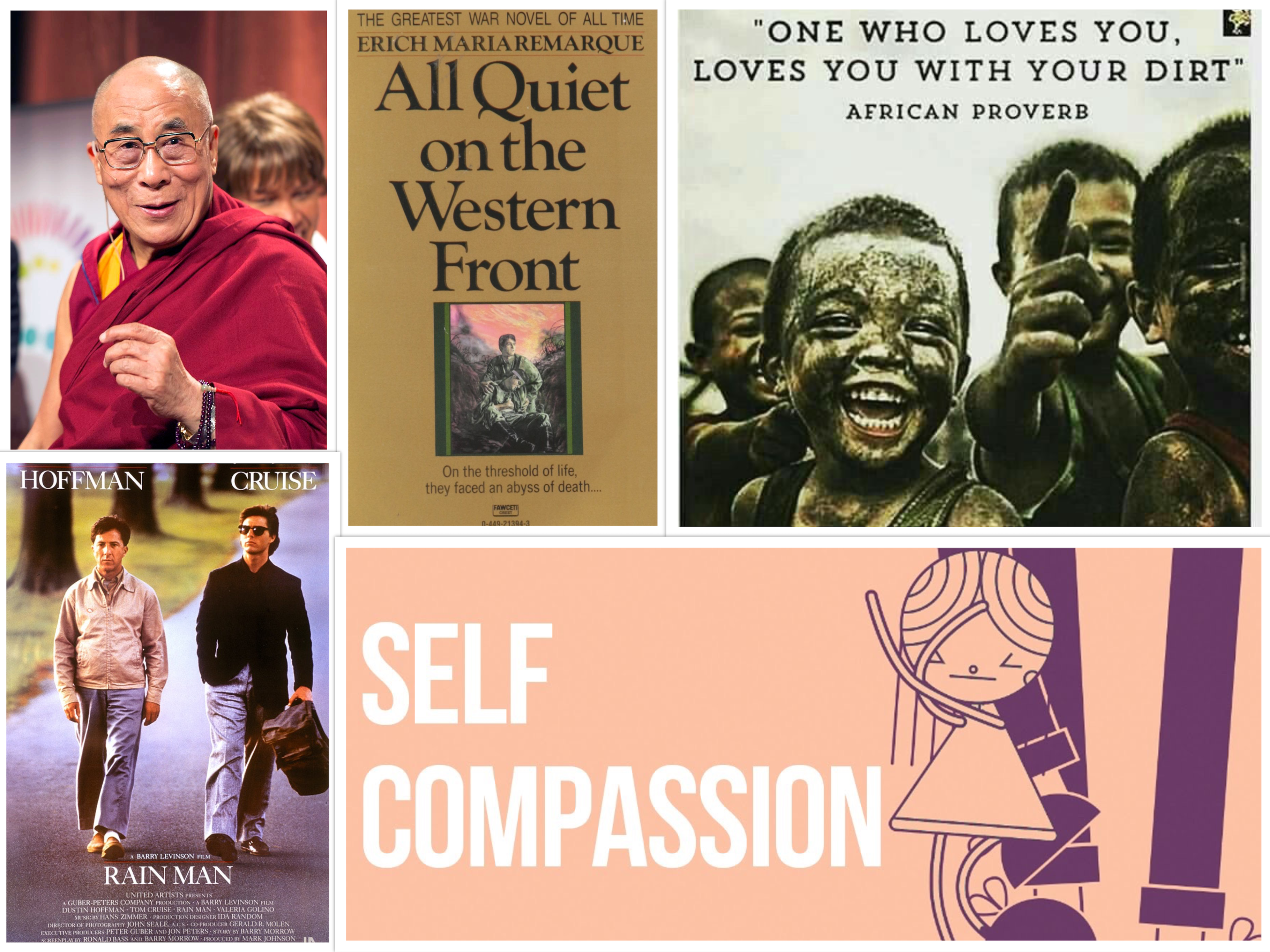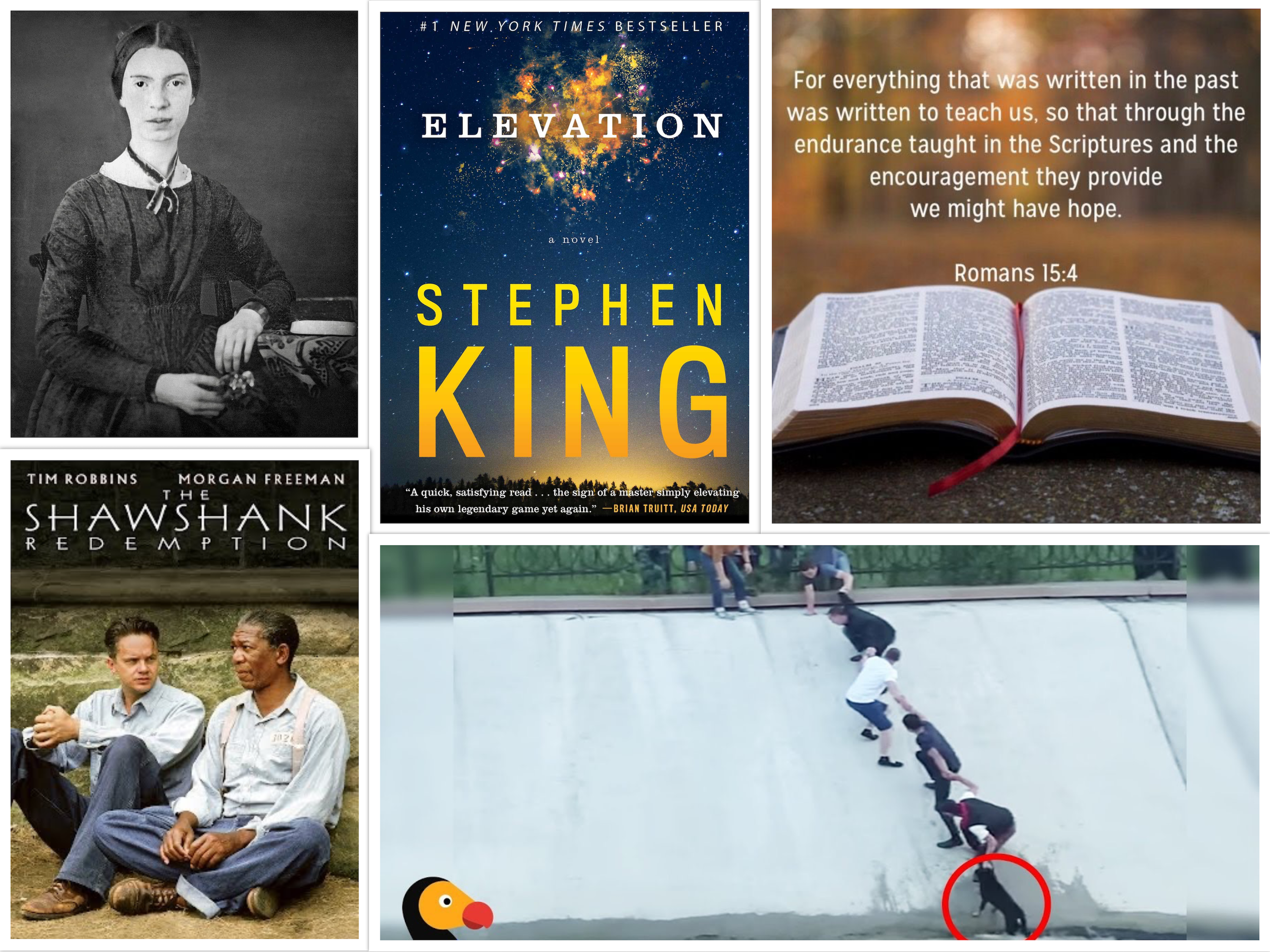Sunday Supplement #33 (December 26th, 2021)
Below is another Sunday Supplement with a quote worth sharing, a book worth reading, a movie worth watching, brainfood worth consuming, and a spiritual passage worth pondering.
I hope you take something away from these recommendations that enriches your week ahead!
Quote of the Week:
“If you want others to be happy, practice compassion. If you want to be happy, practice compassion.”
– The Dalai Lama
Book of the Week:
All Quiet on the Western Front – Erich Maria Remarque
The German novel about World War I was written by veteran Erich Maria Remarque and published in serial form in Vossische Zeitung magazine in 1928.
All Quiet on the Western Front was released in America the following year in book form and became the best-selling work of fiction for that year.
The story focuses on a German perspective of the war. A room of schoolboys is encouraged by their schoolmaster to partake in the glorious war on behalf of their country. The boys are moved by the call of patriotism and sign up for the army. From the point of view of an ‘unknown soldier,’ the novel then explores the horror and disillusionment of life in battle.
I remember reading this book in high school, and it hit me how there are two sides to every story, even in war. At the time, I probably had most of my knowledge of Germany in war influenced by World War II films. I can think back now to my reading All Quiet on the Western Front as one of the early seeds planted for the curiosity of perspective and learning others’ stories.
The book was adapted to a movie fairly quickly in Hollywood and won the Best Picture Oscar at the Academy Awards in 1930.
I’m looking forward to re-reading this novel again, and I’d encourage anyone else interested to give it a chance.
Movie of the Week:
The 1989 Academy Awards had many great movies nominated for Best Picture, including Stand and Deliver (highlighted in Sunday Supplement #3), but it’s clear why Rain Main came away with the Oscar.
The story follows a selfish Los Angeles yuppie, Charlie Babbitt, as he learns his estranged father left his fortune to an autistic savant brother, Raymond, he didn’t know existed. Charlie then absconds with his brother and sets out on a cross-country trip to bring his brother back to Los Angeles in the hopes of gaining what he believes is his rightful fortune.
Tom Cruise played Charlie Babbitt, and Dustin Hoffman played Raymond. The film won four Oscars, including Best Picture, Best Director for Barry Levinson, Best Writing – Screenplay Written Directly for the Screen for Ronald Bass and Barry Morrow, and Best Actor in a Leading Role for Hoffman.
In recent years, I’ve found that there aren’t many films, especially Hollywood movies, that have great depth outside of Independent Cinema. The ones that make it to mainstream attention are clearly worth watching, but many brilliant concepts and subjects get overlooked by the mainstream.
Rain Man is a remarkable film with tremendous character growth that gets depicted through a heartfelt and brilliant story. The movie is a classic, and one that stands remains relevant.
Brainfood of the Week:
Self Compassion — The School of Life
The School of Life is a YouTube channel consisting of psychologists, philosophers, and writers devoted to helping people lead calmer and more reliant lives.
The channel shares ideas on understanding ourselves better, improving our relationships, taking stock of our careers, and deepening our social connections. Another aspect focuses on the outcome of finding serenity and growing more confident in facing challenges.
The School of Life offers films, online psychotherapy, online classes, and a range of books, e-books, and games. They publish a new video on their channel every Wednesday and have an audience of over seven million subscribers.
This video goes over the importance of self-compassion and provides a routine that you can use to engage in self-care.
The recording explains how most humans survive by becoming highly adept at self-criticism for not working hard or being smart enough. This behavior is so we don’t fall behind in life, but the behavior can sometimes become excessive and harmful.
The antidote to being hard on ourselves is self-compassion. However, we can be suspicious of this balancing tool because it can often look like self-pity.
A way to healthily combat depression and self-hatred is self-care.
The School of Life suggests taking time for a 15-minute self-compassion exercise or meditation. The aim is to adopt a kindly perspective on your life and correct the negative flow of your wort self-accusations.
The video is an interesting look at how important self-compassion is and one way of actively engaging in supporting ourselves.
Give the video a watch and see if it clicks for you, but, regardless, make sure to be compassionate to yourself and make self-care a top priority.
Closing Spiritual Passage:
“One who loves you loves you with your dirt.”
– African Proverb
A friend recently told me that things don’t need to be perfect to be good.
I think we can get upset at times when we see something that is unfair, or we see something or someone that has the potential to be better.
When we focus on our thoughts of what could be better, we fail to validate the moment that is right in front of us.
When I read this proverb, I’m reminded of the meaning of unconditional love.
I don’t believe that means we need to validate bad behavior, but I hope to be able to see through the dirt more as I grow.
See if you can find a moment to be compassionate, and have a blessed week ahead!
2 Comments


